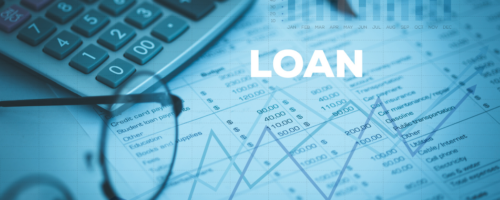Discover the advantages of offering a down payment savings program to your borrowers, designed to help them save faster and reduce stress along the way.
Imagine your borrowers’ savings growing at an accelerated rate, making homeownership a more achievable goal for them. These programs match their contributions, allowing them to reach their target more quickly.
A down payment savings program acts like a turbo boost for their savings account. Your borrowers don’t need to be financial experts to take advantage of these opportunities, which are often tailored for first-time homebuyers or those with lower incomes.
These programs help them overcome the hurdle of saving for a down payment, making homeownership more accessible. By accelerating their savings, your borrowers will be taking a significant step towards owning their dream home.
The benefits of a down payment savings program are undeniable. It’s an opportunity for them to build their savings quickly and stress-free, all while moving closer to achieving their goal of homeownership. Offering such a program can set you apart as a lender who truly supports their borrowers’ financial journey towards homeownership.
What Is a Down Payment Savings Program?
A down payment savings program is designed to help potential homebuyers accumulate the necessary funds for a down payment on their future homes.
These programs often involve partnerships between mortgage lenders, employers, benefits brokers, and credit unions to offer specialized tools and incentives that make saving more efficient and manageable.
How It Works
The primary objective of these programs is to streamline the process of saving money for a down payment. Here’s how they typically function:
- Savings Accounts: Participants can open dedicated savings accounts with favorable terms such as higher interest rates or matching contributions from employers or financial institutions.
- Automatic Transfers: Regular automatic transfers from paychecks into designated savings accounts ensure consistent growth in funds without manual intervention.
- Credit Improvement Tools: Some programs include resources like credit counseling services that assist participants in improving their credit scores, making them more attractive candidates for mortgages.
- Financial Education Resources: Workshops and online courses are provided to educate participants about budgeting, managing debt, and understanding mortgage options.
Are There Down Payment Savings Programs for First-Time Homebuyers?
For many first-time homebuyers, saving enough money for a down payment can be one of the biggest obstacles to purchasing a home. However, there are several down payment savings programs available that can help make this dream more attainable.
Savings Tools and Financial Assistance Programs
Various financial tools and assistance programs have been designed specifically to aid first-time homebuyers in accumulating their down payments. Here are some key options:
- Down Payment Tools: Down payment tools can significantly aid first-time homebuyers by offering tailored savings programs and financial assistance, making the path to homeownership more accessible. These tools help buyers efficiently accumulate the necessary funds and reduce the financial burden of a down payment.
- Employer-Assisted Housing (EAH) Programs: Some employers offer EAH programs as part of their benefits package. These programs provide grants or loans to employees who are looking to buy homes. Employers interested in such initiatives can explore resources provided by organizations like HUD’s Employer Assisted Housing Program.
- IDAs (Individual Development Accounts): IDAs match your savings with additional funds from non-profit organizations or government agencies when you save towards buying a house.
- Lender-Sponsored Down Payment Assistance: Many mortgage lenders and credit unions offer specialized products that include low-down-payment options or even zero-down-payment mortgages for eligible borrowers.
Benefits of Using a Down Payment Savings Program
A down payment savings program offers numerous advantages for both individuals and businesses. By incorporating these programs, mortgage lenders, mortgage servicers, employers, benefits brokers, and credit unions can enhance their service offerings while helping clients achieve their homeownership goals more efficiently.
Improved Credit Scores
One significant benefit is the improvement in credit scores. Tools that help improve credit are often integrated into these programs to ensure participants are financially prepared for homeownership. For example, some programs provide financial education resources or automatic debt repayment plans which contribute positively to one’s credit history. Improved credit scores can lead to better loan terms and lower interest rates.
Simplified Saving Process
The structured nature of down payment savings programs simplifies the saving process for potential homeowners. Automated contributions from paychecks or linked bank accounts make it easier for participants to save consistently without needing to manage separate accounts manually.
- Automatic payroll deductions
- Employer-matched contributions
- Linked bank account transfers
Lower Monthly Payments
One significant advantage is that your borrowers might end up with lower monthly mortgage payments. With payment assistance reducing the loan amount, their monthly bills could be much more manageable. This makes homeownership more sustainable for them over the long term.
Faster Path to Homeownership
Perhaps the most exciting benefit of down payment savings programs is the ability to accelerate your borrower’s path to homeownership. Without assistance, it could take years to save enough for a down payment on your own. But with the help of these programs, your borrower could potentially achieve their dream of owning a primary residence much sooner.
The Role of Financial Institutions
Financial institutions play a pivotal role in helping individuals achieve their homeownership dreams. By offering tools that improve credit and downpayment savings, they can make the path to owning a home more accessible for many. Here’s how financial institutions like B2B mortgage lenders, mortgage servicers, employers, benefits brokers, and credit unions can contribute:
Credit Improvement Tools
- Credit Counseling Services: Providing access to professional credit counseling services helps borrowers understand their current credit situation and create actionable plans for improvement.
- Automated Payment Solutions: Platforms automate payments towards debts which help customers avoid missed or late payments that negatively impact their credit scores.
- Credit Builder Loans: Offering small loans specifically designed to build or rebuild positive payment history on one’s credit report is another way financial institutions support clients’ long-term goals.
Savings Programs for Down Payments
- Matched Savings Plans: Employers can collaborate with financial institutions to offer matched savings programs, in which employees’ contributions to downpayments are matched up to a certain percentage.
- First-Time Homebuyer Programs: These programs often provide grants or low-interest loans aimed at helping first-time buyers accumulate the necessary funds for a downpayment
Banks and other lending entities have an opportunity to educate consumers about these resources through workshops and seminars. Engaging potential homeowners early in the process allows them time to implement strategies that will enhance both their ability to save for a downpayment and improve overall fiscal health.
By integrating such tools into existing service offerings, mortgage lenders and financial institutions not only expand customer loyalty but also drive community growth through increased rates of successful home purchases. This integrated approach also ensures clients receive comprehensive support from saving up enough money upfront right through securing favorable loan terms.
Tips for Borrowers: Maximizing Down Payment Savings
Saving for a down payment can feel like an uphill battle. But, don’t let your borrower throw in the towel. Here are some tips to share with them to help maximize their savings and reach their homeownership goals faster.
Create a Budget
Encourage your borrowers to start with the basics: creating a budget. While budgeting might not be the most exciting task, it’s essential for saving for a down payment.
Advise them to begin by listing all their income and expenses for a month. This will give them a clear picture of where their money is going. Once they have this information, guide them on identifying areas where they can cut back, allowing them to allocate more funds into their savings account.
Automate Your Savings
Advise your borrowers to set up automatic transfers from their checking account to their down payment savings account each payday. This ensures consistent saving without requiring them to think about it.
By automating their savings, they’ll be less tempted to spend that money elsewhere, helping them stay on track towards their down payment goal.
Reduce Debt
Inform your borrowers that high-interest debt, like credit card balances, can significantly impede their ability to save for a down payment. The more they pay in interest, the less money they have available to contribute to their savings.
Encourage them to create a plan to pay off their debt as quickly as possible. Recommend the debt snowball method, where they focus on paying off their smallest debts first and then progressively tackle larger ones. This strategy can help them free up more funds for their down payment savings.
Improve Your Credit Score
A good credit score boosts your borrower’s chances of getting approved for a mortgage with favorable conditions. The higher it is, the lower their interest rate will likely be.
Want to help boost your borrower’s credit score? Start having them pay every bill on time. Keep an eye on how much of their available credit they are using, and advise them to try not to open new accounts unless they really need them.
Explore Additional Funding Sources
Advise your borrowers not to hesitate in getting creative with their down payment options. Suggest that they look into local assistance programs that offer grants or forgivable loans.
Additionally, they can consider asking family members for a gift to help with the down payment. Remind them to keep track of any gifts and report them accurately to you as their mortgage lender.
Saving for a down payment requires time and discipline. By utilizing these strategies, your borrowers will be well on their way to making their homeownership dreams a reality.
Talk About Closing Costs
Talk About Closing Costs
Closing costs are an essential part of the home buying process, and understanding them can help mortgage lenders, servicers, employers, benefits brokers, and credit unions provide better guidance to their clients. These fees cover various services required to finalize a real estate transaction.
What Are Closing Costs?
Closing costs typically include expenses such as:
- Appraisal Fees: The cost for a professional appraiser to assess the home’s value.
- Title Insurance: Protects against potential legal disputes over property ownership.
- Lender Fees:
- Recording Fees: Charged by local government offices for recording the sale documents publicly.
The Importance of Transparency in Closing Costs
Misinformation about closing costs can lead to confusion and dissatisfaction among homebuyers. It’s crucial for professionals like mortgage lenders and credit unions to offer clear explanations about these expenses upfront. This transparency builds trust with clients and ensures they are well-prepared financially when it comes time to close on their new homes.
Savings Programs Can Help Cover Closing Costs
An effective way employers or benefits brokers can assist employees is through down payment savings programs that also consider closing costs. Programs like EarnUp provide tools designed not only for improving credit but also for accumulating savings towards both down payments and closing costs. Such initiatives can alleviate financial stress during the home-buying journey by helping individuals save systematically over time.
Learn more about how implementing these tools can benefit your organization at our official website’s dedicated section on down payment savings programs.
The Role of Credit Unions in Educating Members About Closing Costs
Apart from offering competitive mortgage rates, credit unions play a vital role in educating members about all aspects of purchasing a home—including closing costs. Providing workshops or online resources that explain each fee involved helps demystify this often-overlooked aspect of buying property.
Conclusion
So there you have it – the details on down payment savings programs. They’re not just some gimmick or far-off idea, but a real way to make your borrower’s homeownership goals a reality, faster and with less stress.
Think of these programs as a powerful savings strategy. They’ll help you gather a down payment quicker, secure more favorable mortgage rates, and move into the house they’ve always wanted sooner than expected.
Because, let’s be honest, it’s what you’ve been working towards. If they’re serious about becoming a homeowner, they should know that these programs are more than just a starting point. They’re a launching pad to getting the keys to a new place, getting settled, and building a life for your borrowers.
FAQs in Relation to Down Payment Savings Program
What is the best account for saving for a down payment?
A high-yield savings account or money market account works best. They offer better interest rates than regular accounts.
What is the biggest negative when using down payment assistance?
The main drawback can be stricter eligibility requirements and sometimes higher interest rates on your mortgage loan.
What is saving for a down payment?
Saving for a down payment means setting aside money specifically to cover part of your home’s purchase price upfront. Borrowers can use down payment savings programs to help.









